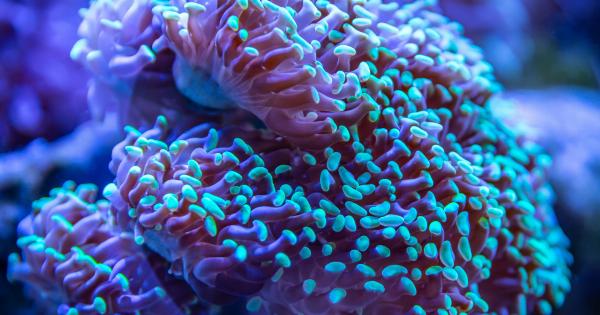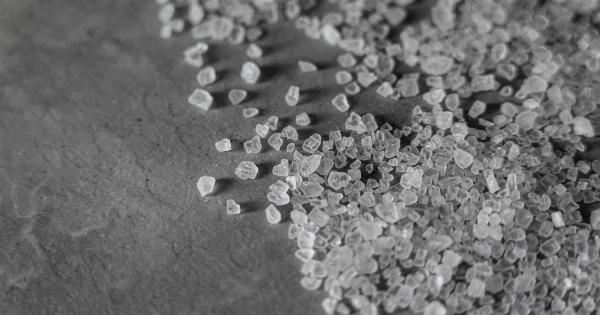Salt is an essential mineral that plays a vital role in our body. While it is necessary for various bodily functions, overconsuming salt can have serious health consequences.
Excessive salt intake has been linked to high blood pressure, heart disease, stroke, and other health problems. Many people are unaware of their salt consumption habits and fail to recognize the signs of overconsumption. In this article, we will discuss nine ways to identify if you are overconsuming salt.
1. Frequent Thirst
If you find yourself constantly reaching for a glass of water, it might be a sign that you are consuming too much salt. High salt intake leads to dehydration as salt causes the body to retain water.
This imbalance can make you feel excessively thirsty, leading you to consume even more fluids.
2. Frequent Urination
Overconsuming salt can disrupt the balance of fluids in your body, leading to increased urine production. If you find yourself making more trips to the bathroom than usual, it could be an indicator that you are consuming excessive amounts of salt.
3. Bloating and Swelling
Consuming too much salt can cause water retention in your body, leading to bloating and swelling. If you notice that you frequently experience bloating, especially in the hands, feet, and ankles, it’s possible that your salt intake is too high.
4. High Blood Pressure
One of the most significant indicators of overconsumption of salt is high blood pressure. Salt contains sodium, and excessive sodium intake can lead to increased blood pressure levels.
Regularly monitoring your blood pressure can help you identify if your salt intake is contributing to hypertension.
5. Headaches
If you frequently suffer from headaches or migraines without any apparent reason, your salt consumption might be to blame. Too much salt can cause blood vessels to constrict and put pressure on your brain, resulting in headaches.
6. Unquenchable Hunger
Excessive salt intake can stimulate your appetite and make you feel hungry even after consuming a substantial meal.
If you constantly feel the need to snack or eat larger portions to satisfy your hunger, it could indicate that your salt consumption is contributing to your increased appetite.
7. Kidney Stones
High salt intake can lead to an increase in calcium levels in your urine, increasing the risk of kidney stone formation.
If you have a history of kidney stones or experience pain in your lower back or abdomen, it is essential to evaluate your salt intake.
8. Fatigue and Weakness
Consuming excessive salt can negatively impact your energy levels and leave you feeling tired and weak. Salt can dehydrate your body and affect your electrolyte balance, leading to decreased stamina and fatigue.
9. Cravings for Salty Foods
If you constantly crave salty foods, it might be a sign that you are consuming too much salt. Your taste buds can become accustomed to high levels of salt, causing you to seek out saltier foods to satisfy your cravings.
Conclusion
Identifying if you are overconsuming salt is crucial for maintaining good health.
By recognizing the signs and symptoms associated with excessive salt intake, you can take steps to reduce your consumption and mitigate any adverse effects on your well-being. Remember, moderation is key when it comes to salt consumption, and maintaining a balanced diet is essential for overall health.




























